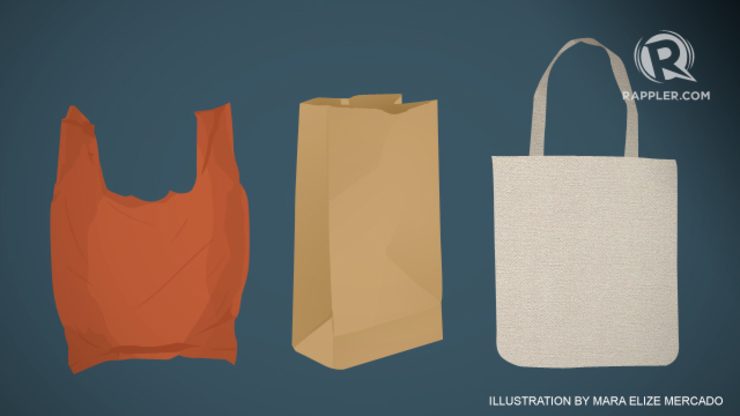SUMMARY
This is AI generated summarization, which may have errors. For context, always refer to the full article.

Back in 2012, supermarkets started using paper bags instead of the conventional plastic grocery bags to comply with the Total Plastic Bag Ban law. Of course, it seems quite natural for environmentally-conscious people to applaud this mandate. After all, plastic is tantamount to evil for the earth-loving. Or is it? Before we lay this case to rest, let us take a look at some veritable research results. The findings would certainly change your mind.
Let me begin by saying that I am a big proponent of our planet’s welfare. I also studied Environmental Management and Sustainability at Harvard. A straight forward analysis on the environmental impact of plastic versus paper bags begins by examining life cycle assessment (LCA) reports. This article looks at several LCAs conducted by reputable international agencies, from both private and public sectors.
Is the paper bag really a better alternative to plastic? Is the reusable bag kinder to the planet? When we say something is bad for the environment, we mean that it uses a lot of energy and water, aggravates global warming, and increases water and air pollution. Several LCAs take a cradle to grave approach in comparing the environmental impact of paper and plastic.
A pioneer report conducted in 1990 by Franklin Associates, concluded that the emissions from manufacturing paper bags were roughly three times compared to plastic bags. This was later corroborated by two more reports in 2004 and 2007, with similar finding – paper bags intensify global warming two to three times more than plastic bags.
Furthermore, the production of paper also uses a lot more water, a resource that is becoming scarcer. Water pollution and solid waste findings favor the plastic bag, as well. Even the speed of paper’s biodegradability in a landfill is now in question. Some suspect that both materials biodegrade almost as slowly when subjected to landfill conditions.

So how could we be so wrong? The Total Plastic Bag Ban Act of 2011 begins with citing the use of one billion plastic bags annually worldwide. Yes, they are clogging our drains and endangering marine life when plastic trash drift in the sea. But one billion paper bags are even more harmful to the planet.
A better solution is to actually focus on the ‘one billion bags.’ Do we really need that many? The main purpose of grocery bags is to transport goods to our homes. If the neighborhood grocery is about ten minutes away, then that’s the usable lifespan of those bags. We are using them at lightning speed compared to how long it took to actually create them, even after reusing some as garbage can liners.
Just consider the key ingredients. Paper comes from trees which take years to grow before harvesting, even in compliance with sustainable agriculture. Plastic is a by-product of the petroleum refining process; this material is non-renewable. We have not even accounted for manufacturing and transport. The time it takes to use a bag twice or thrice is still miniscule compared to the time, resource and effort it takes for those bags to get to the grocery.
One of the best practical solutions is to avoid using disposal bags at all. For small items that can fit in handbags, just request for the receipt, no bag. For extra large items like a bag of toilet tissue rolls or cases of bottled drinks, they go straight from the cart to the car, no bag needed. Of course, there are items that really require a bag. Many of us have been conscious enough to supply our own grocery bags.
However, a UK study puts a word of caution on using sturdier, reusable bags. The heavier the material, the greater is a bag’s sustainability footprint. For example, a cotton grocery bag has to be used at least 100 times for its impact to equal that of a disposable plastic bag. So, buying reusable bags at the counter because you forgot yours at home, is actually much worse. A better alternative when bags are forgotten (we are all guilty), is to request the attendants to reuse their own cardboard boxes. This way, we extend the life of the box even after groceries and we save on using fresh paper bags.
The present law imposes fines of up to P200,000 ($4,570) on establishments using plastic. This automatically switches material use to paper, which is actually more damaging. What we need is regulation that puts a price on forgetting our own bags. Other countries have moved on to a fine on single-use bags. A reduction in bags used makes for a happier planet. But are Filipino consumers ready for this responsibility? – Rappler.com
Crissie Hontanosas is founder and director of the Advisory Center for Climate Change & Sustainability.
Add a comment
How does this make you feel?
There are no comments yet. Add your comment to start the conversation.